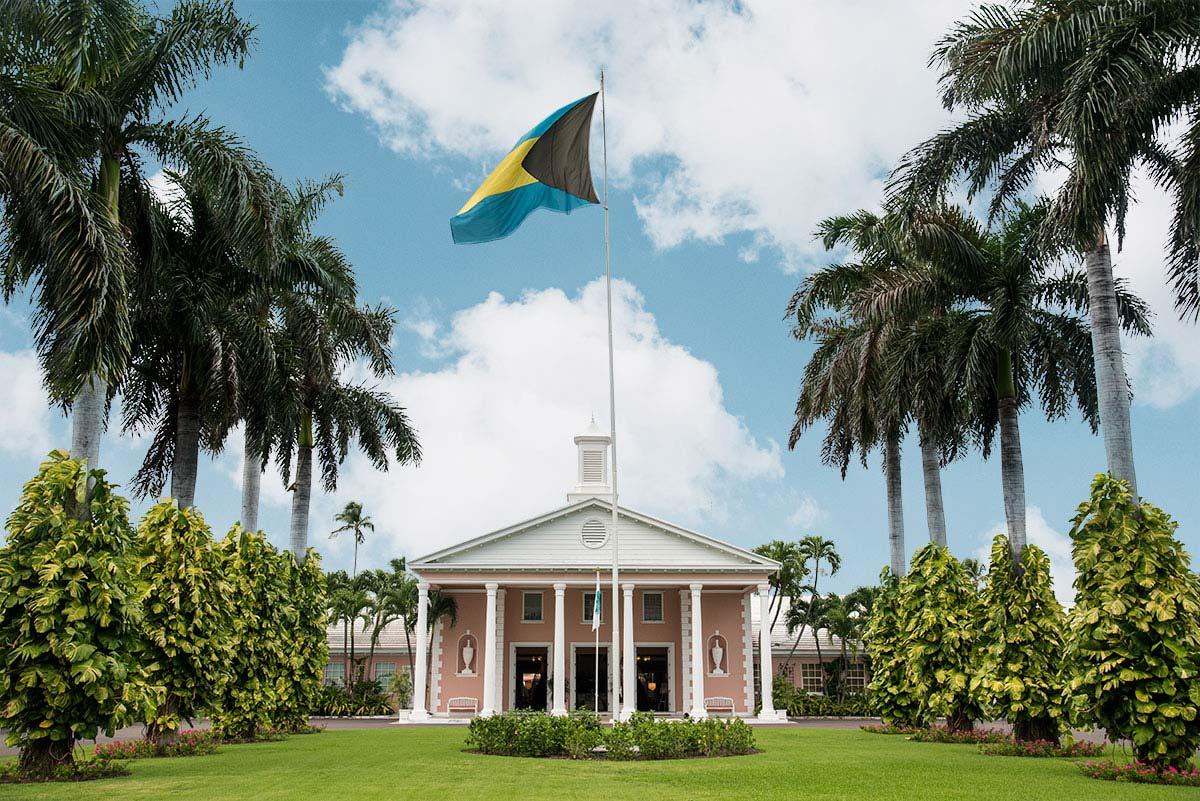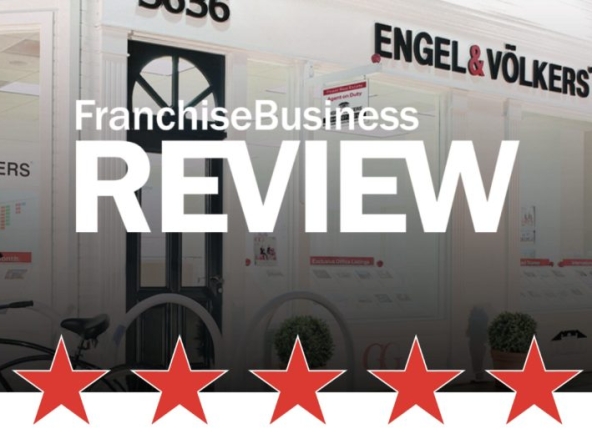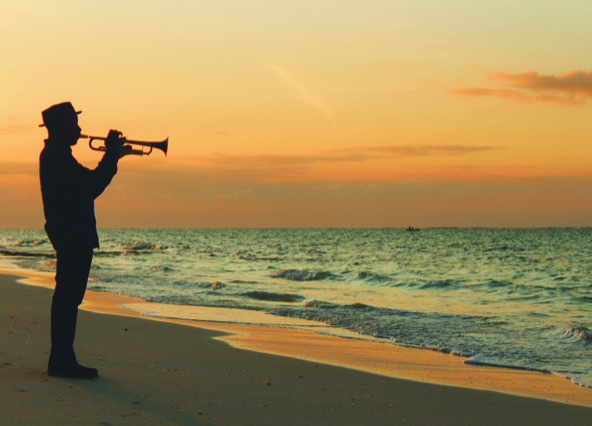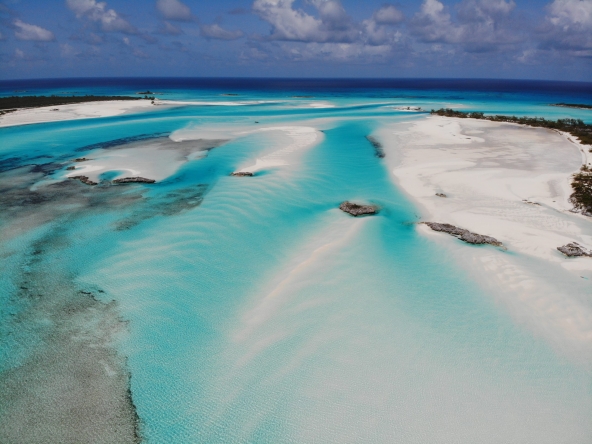“We believe that at this historic moment our world society should take stock of its considerable achievements as well as its failures, and allow hope and encouragement from the former to strength resolve in redressing the latter.”
From The Opening Statement of The Commonwealth Heads Of Government, Lyford Cay, The Bahamas, 1985
On any given day, the Lyford Cay security level is higher than most places in The Bahamas, in October of 1985 it was at an elevated level like never before and possibly never again, secret service stalked the bushes, a helicopter hovered overhead, local police stood guard at all the major community and building access points and a navy ship patrolled the coast with local defence force marines checking on all the boats in the immediate area.
The Club was hosting the biennial Commonwealth Heads of Government (CHOGM) and forty-nine heads of state were going to meet and discuss several international issues with the most important being apartheid in South Africa.
In addition to the country heads, their emissaries, security detail and in some cases, families were all being housed in the exclusive community on the western end of New Providence. The entirety of Lyford Cay including the club cottages, rooms and many of the private homes were for the exclusive use of the CHOGM contingents.
Engel & Völkers advisor Paul Thompson was the managing director at the time and remembers it all very clearly. His team was responsible for the organization of the event, and had to prepare and deliver breakfast, lunch and dinner as well as coordinate with event staff, security details and the Bahamas government.
“We had to prepare special menus for each meal, Prime Minister Sir Lynden asked me to send them to his coordinator for review. At the time, the club culture was to have menus in French with smaller English sub-titles.”
Sir Lynden called Paul. “Paul, what country do we live in?”
“The Bahamas, Sir.”
“What language do we speak here?”
“English, Sir.”
“Then why aren’t these menus in English?”
Paul understood and had them all corrected immediately and sent back for his approval. The meeting took place over the course of about a week at which time Paul interacted with most of the dignitaries.
“Early on the first morning, Australia’s Prime Minister Bob Hawke asked to play a round of golf. The course was not open that early so I gave him my golf cart and sent him breakfast on the course consisting of freshly squeezed orange juice, a croissant and Danish. He was very grateful.”
On the first evening he remembers Margaret Thatcher arriving with her husband, for the cocktail reception before dinner, she was one of the few heads of state that had their spouse in tow. They shook hands and Paul said, “Welcome to The Lyford Cay Club.”

“I remember it well,” she responded and reminisced about her previous visit to meet with E.P. Taylor, the original developer of Lyford Cay. Once they had finished their conversation, her husband was allowed to speak, he leaned in to Paul, “Is there any chance I can play some golf?” Paul made the arrangements.
He remembers the Prime Minister of India, Rajiv Gandhi, whose mother had chaired the last CHOGM meeting and had since passed away.
“He was a tall and distinguished looking man. Very down to earth and friendly, we spoke often. He wanted to go into town after dinner one night and experience the local scenes, the security detail was having fits over it.”
Sir Lynden Pindling
On the final Sunday, Sir Lynden came to Paul and asked him to help with a very important select meeting with a few of the members. He asked Paul to use the club’s library and gave him all the instructions to support a flawless meeting.

“He came to me and said, ‘Paul we are going to work on a resolution for sanctions on South Africa.’” The meeting, included the President of Zambia, Prime Ministers of Australia, Canada, India, The United Kingdom and Zimbabwe, our own Sir Lynden and the Secretary General.
Paul says they were in there for hours and hours and at around five in the afternoon they exited with Sir Lynden announcing to Paul, “The Resolution is finalized, it will be called the Lyford Cay accord.” However, it became known as The Nassau Accord and led to sanctions against South Africa that would eventually end apartheid and free Nelson Mandela, who became one of the world’s most beloved statesmen and astute politicians.
In ‘The Crown’ episode eight of season four, the Queen and Prime Minister Thatcher battle back and forth over the language used in drafting the resolution. After an entertaining back and forth between the two very determined ladies, they eventually agree on the word ‘signals’ to refer to the actions to be taken against the South African government. The word used in the final draft is ‘measures’, leave it to Hollywood to create some drama. Some of the sanctions included:
- a ban on all government loans to the Government of South Africa and its agencies
- an embargo on all military co-operation with South Africa
- a ban on the sale and export of oil to South Africa
- a ban on the sale and export of computer equipment capable of use by South African military forces
- Discouragement of all cultural and scientific events except where these contribute towards the ending of apartheid or have no possible role in promoting it
The intention was to have an affect within six months and if this was not achieved, another round of crippling sanctions had been tabled, including:
- A ban on air links with South Africa
- A ban on new investment or reinvestment of profits earned in South Africa
- A ban on the promotion of tourism to South Africa
- The termination of all government assistance to investment in, and trade with, South Africa
- A ban on the import of agricultural products from South Africa
In a third and final resolution, all options were on the table, while it did not mention anything of the military sort, that is the feeling you get reading it.

Overall, it was a very successful event, not just the meeting itself and the effort of Paul’s team, but the objectives and conclusions that played a significant role on the world stage. Paul became close with the Sir Lynden and Lady Marguerite, afterwards becoming co-chair with Lady Marguerite of the Red Cross and eventually taking over as chair when she retired.
At the conclusion of CHOGM, Paul remembers about fifty dark-blue, right hand drive, crown sedans that had been purchased for the dignitaries. They would all be sold off.
“I bought one of the sedans for $14,500, it only had three hundred miles. All of the cars had dignitary badges on the inside, when I took possession, mine read “Mugabe. I had the car for about ten years, it was one of my best cars.”
Nelson Mandela Visits
When Nelson Mandela was released from prison, his first international trip was to The Bahamas to thank Sir Lynden for his role in the efforts to end apartheid back in his homeland. He stayed in Cottage 89 at the Lyford Cay Club and told Paul he owed the Bahamas so much and wanted to come back to say thank you to Sir Lynden and the people of The Bahamas.
On his second or third return trip, Sir Anthony O’Reilly invited him to the Lyford Cay Scholarship tea. The Club hosted this annually between Christmas and New Year and it consisted of about five hundred people including scholarship recipients, their families, friends and donors.
“We invited Mr. Mandela because we thought he would enjoy seeing all the young Bahamian success stories and the great work the foundation was doing to advance education in the country. We walked around meeting people and he asked if he could speak. He talked about how excellent it is that students are provided scholarships in education and praised The Bahamas.”
Paul emphasizes what a humble man he was and how amazing it was that he could be this kind and humble after everything he had been through. Sir Lynden called Paul that afternoon and asked him to give ‘Nelson’ his number so they could have dinner that evening.

At Home on Elbow Cay
Back at home, on Paul’s little fairy tale island in The Abacos, he is up early every morning working on one of the many projects or chairing a group committee on rebuilding some of the establishments of Elbow Cay after Hurricane Dorian devastated the island in late 2019. Paul is currently the President and Treasurer of the Aunt Pat’s Bay property owners’ association where he is the project manager for the rebuilding of 17 dock slips, the sea wall, and boardwalk for the community. Some of Paul’s other projects include; project manager for St. James Methodist Church’s Sunday School construction, Project Manager for the restoration of the St. James Mission House, Treasurer and Project Manager for the Community Center of Hope Town, Restoration and Management of Sam’s Rental Cottage, consultant for the development of a private island and working with various Hope Town committees to assist in improving the quality of life.

The island is making a comeback with restaurants and hotels opening, tourists trickling in again, and real estate trading on one of the more desirable markets in The Bahamas. Paul continues to offer his elevated level of service, treating everyone as a dignitary with respect, courtesy and most importantly, offering the quality time that people deserve.



